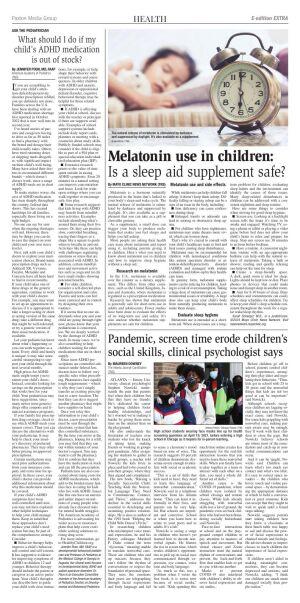February is American Heart Month, which focuses on the fact that heart disease is the leading cause of death in the U.S., and ways to lower your risk for heart disease. Here are five ways to boost your heart health, from the Centers for Disease Control and Prevention:
Exercise regularly. Maintaining a healthy weight is an important part of heart disease prevention, and regular exercise is one way to achieve this. The surgeon general recommends that adults get two and a half hours of moderate physical activity like walking or biking weekly. Children and adolescents should aim for an hour of physical activity every day.
Eat healthy. Establishing healthy eating habits is another way to maintain a healthy weight. Avoid foods that are high in saturated fat and trans fat. Opt for foods that are high in fiber and low in saturated fat, trans fat and cholesterol to help prevent high cholesterol. Foods with lower sodium can help lower your blood pressure, and consuming foods with less sugar can help keep your blood sugar under control.
Set limits. Limiting your alcohol intake and avoiding smoking can also help you prevent heart disease. Knowing your limits and setting boundaries can help you stay disciplined, which is another vital part of lowering your risk for heart disease.
Monitor health conditions. If you struggle with high blood pressure or high cholesterol or have diabetes, managing these conditions is a key part of preventing and lowering your risk for heart disease. Consult with doctors and other members of your health team to see what their recommendations are for managing existing medical conditions. They may prescribe medicines to help manage your blood pressure, cholesterol or blood sugar, along with lifestyle changes to help.
Work with a team. It’s important to work with your health care team if any of your conditions change, if your family has a history of any of these medical conditions or if you suspect you might be at risk for them. Consult your doctor if you’ve already had a heart attack or if you struggle with mental-health issues.
Create a treatment plan that works for you and discuss it regularly, making adjustments when necessary. Don’t stop taking any prescribed medicines before talking to your doctor.
Prioritizing heart health is critical for preventing and lowering your risk for heart disease. For more tips to boost heart health, visit cdc.gov/heartdisease/prevention.htm.













